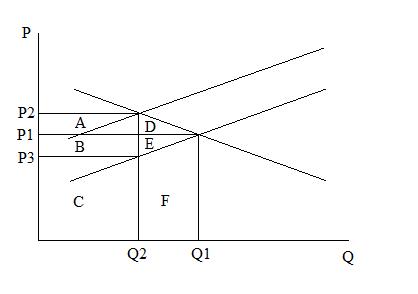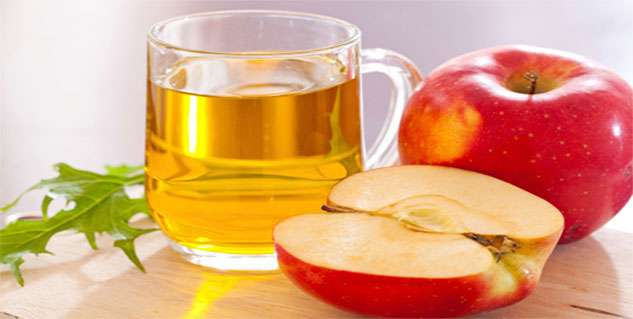Whole Foods vs. Antioxidant Supplements for Optimal Health
Hundreds of studies done over the last few decades have shown the benefits of eating whole fresh fruits, vegetables, whole grains, legumes, nuts and seeds. Scientists have studied these foods to determine what is in them that provides these positive results in lower cancer rates, less heart disease, strokes, diabetes and many other chronic diseases. One common factor in all of these are the "antioxidants" vitamins A (in the form of beta-carotene), C and E.
An antioxidant is a molecule which can slow or prevent the oxidation of other molecules. Oxidation is a natural process in the body that can produce free radicals, which start chain reactions that damage cells. This damage is thought to be the root cause many of the chronic diseases common today.
Because of the known benefits of these antioxidants in foods, and the fact that many people--for whatever reason--do not eat enough of these foods; supplement manufacturers have created antioxidant supplements to make it easy for people to add them to their diet.
The question is, do these supplements provide the same health-enhancing benefits as getting these antioxidants naturally in foods? The answer, from recent studies, seems to be "NO."
The most recent study published in the January 7, 2009 issue of the Journal of the National Cancer Institute, followed two other important studies that also did not show that various antioxidant supplements could prevent cancer.
"Although a healthful dietary pattern rich in fruits and vegetables may lower cancer risk, such benefits cannot be mimicked by simply popping a few vitamin supplements," Dr. JoAnn Manson of Brigham and Women's Hospital and Harvard Medical School in Boston said in a statement.
Dr. Manson and colleagues tracked 7,627 women with an average age of 60, who took supplements for about 9-1/2 years.
Some took 500 milligrams of vitamin C daily, 600 IU (international units) of vitamin E every other day or 50 milligrams of beta carotene every other day--or different combinations of the three supplements. Others were given placebos.
Results showed that women who took the supplements had similar rates of cancer and cancer death compared to those who took a placebo. The study suggested that vitamin E supplements might reduce colon cancer risk and that beta carotene supplements might actually modestly raise lung cancer risk.
"Simply taking antioxidant supplements is insufficient to prevent cancer. People should take more natural plant foods which are rich with many nutrients including but not limited to antioxidants," Lin said.
Fruits and vegetables are rich in these vitamins, and it has been shown that people who eat plenty of these foods have a lower risk of heart disease, cancer and other conditions.
In a separate study released in November, 2008 involving about 15,000 male doctors, vitamin E and C supplements did not lower cancer risk. Another study released in October, 2008 found no cancer reduction in 35,000 men taking vitamin E and selenium supplements.
Previous to these, two major studies sponsored by the National Cancer Institute in 1994 and 1996 showed that the incidence of lung cancer was 12-28 percent higher among participants who took beta-carotene supplements than among those who took a placebo. The rate of death from all causes was 8-17 percent higher in those who received the beta-carotene supplements. The two studies involved 29,000 and 18,000 participants respectively over a period of 4-6 years.
Summary
1. There are still some unknown factors in whole foods which provide health-enhancing benefits besides the major vitamin antioxidants that we know of.
2. It is difficult, if not impossible to duplicate the complexity and balance of nutrients in foods created in nature.
3. It can actually be harmful to separate and eat isolated parts of foods and remove the natural balance of nutrients in they contain.
In regard to #1 above, we actually do know what some of these other factors are. They are called "phytonutrients" and have many positive functions in the body including--but not limited to--antioxidation. There are dozens, sometimes hundreds, or even thousands of these in the best foods. They all need to work together in synergy--not each separately.
The bottom line: there are no shortcuts to eating the best foods such as fresh vegetables and fruits, whole grains, legumes (beans, peas, nuts and seeds), low-fat dairy, and lean meats.
So focus on eating the best foods in their most unprocessed whole-food form, rather than counting on supplements to make up the difference in your diet. If you do supplement, make sure it is based on whole-food concentrates as foundational nutrition, rather than isolated vitamins and minerals--so you get the natural balance they provide. If you have a specific need for more of a certain vitamin or mineral due to a deficiency--add those to your diet as prescribed by your health professional. Healthy eating!
-
Hard Core Secrets from A Fat Loss Maniac
I am an educator with an expertise in fat loss. I have personally had
-
Train At Home With A Personal Trainer
Many stay at home moms struggle with their physical fitness because, a
-
Fighting Weight Gain With Mirafit fbcx
Obesity, as has been newly confirmed by the Brookings Institute, is a
-
Long Lasting Weight Management Plan - Key Things You Ought to Know
The reason why so many people are having problems keeping the weigh
-
Are You Motivated To Lose Weight?
So you want to lose weight. That’s good, but are you serious?
-
Essential Elements Of A Weight Loss Program
The first thing you have to do in any weight loss program is know what
- DON'T MISS
- A Simple Low Carb Diet Plan
- 4 Diet and Exercise Tips for the Holidays
- 5 Weight Loss Foods for Vegetarians & Vegans
- Cheat Your Way Thin - Great Advice on Fat Loss
- Hoodia Green Tea And Dieting
- Trouble About Obesity?
- 10 Great Ways To Burn More Fat
- Looking For The Best Way To Lose Weight? Here's What You Need To Know
- Weight Loss & Fasting - Mastering Hunger
- To Lose Weight Keep a Record of What You Eat




